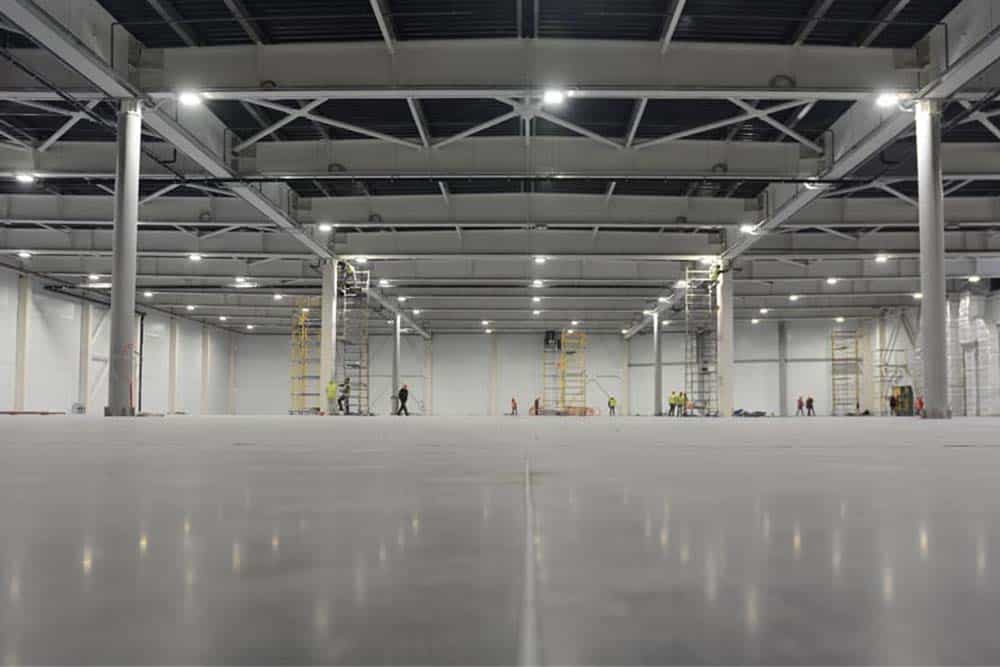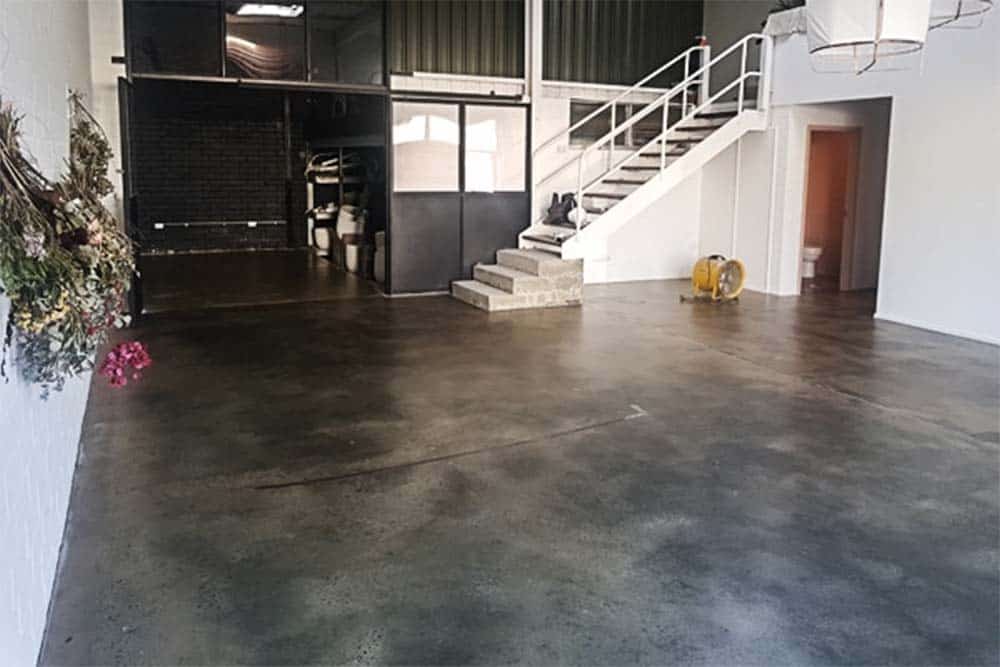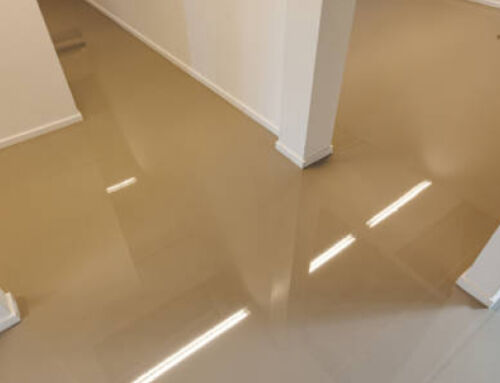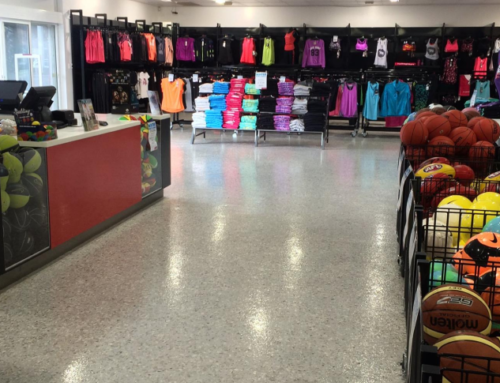Your Perth business needs to make a lasting impression, and your choice of concrete finish can leave customers happy…or wishing they’d never stepped foot in your store, business, or commercial space.
If you’re interested in installing concrete floor finish for your commercial space, you’re making the right decision…but it helps to know what the best finish is for you.
This type of finish is durable, low-maintenance, aesthetically pleasing, and far less costly than other flooring options. And, if you work with many chemicals or heavy tools, it can be much safer over time.
That said, not all concrete floor finishes are made the same, and they aren’t all suitable for every user and situation. To help you separate the average from the exceptional, we’ll cover your different commercial finish options and outline who they’re best for so you can understand the differences and see which type is best for you.
Ready to upgrade your commercial space? Let’s get right into it.
Is finished concrete worth it?
In short – yes.
This is an ideal flooring option for many spaces and organisations thanks to its long list of advantages and capabilities. These include:
- Durability: These floors are resilient and tough
- Longevity: If properly installed, these floors can last for over 100 years
- Affordability: These floors are very affordable, particularly if you’re working with an existing slab that just needs to be stained or finished
- Versatility: There are many design, pattern, colour, or stain options, so you can customise your floors however you want
- Cleanliness: These floors are much more sanitary than other materials
These advantages make concrete a great option for many spaces. But enough theory, let’s get into the different finishing options that you should know more about.
What are the different types of concrete floor finishes?
There are many types to choose between, including methyl methacrylate (MMA) flooring, non-slip epoxy floor resins, polyaspartic resin coating, and polyurea protective coatings (try saying those 10 x times in a row as fast as you can!).
These options each have their pros, cons, and best applications – and there is no one-size-fits-all for every type of space and scenario.
To help simplify your choices, here is everything you need to know about the primary options that you have, as well as which would be most suitable for your commercial space or spaces.
Methyl Methacrylate (MMA) Flooring
Methyl Methacrylate, or MMA, is a great and versatile flooring option for organizations in the retail industry, manufacturing, hospitality, education, or food & beverage.
Why?
It’s chemical-resistant, slip resistant, and water resistant, which makes it particularly safe for use in a range of Perth-based industries.
In more detail, MMA is:
- Resistant to extreme temperatures, which means that it’s ideal for use in freezers and coolers.
- Slip resistant thanks to a variety of textures and finishes made to reduce slippage on surfaces.
- Water resistant, which makes it ideal for rooms that are often exposed to liquids, like breweries or tank rooms.
- Chemical resistant, which can protect areas from any acid or chemical spills and splashes.
- Low VOC, meaning it emits low volatile organic compounds over time. This makes it more nontoxic than other options, particularly in the long-term.
Non-Slip Epoxy Floor Resin
In many Perth workplaces, one of the biggest hazards is slips, falls, or trips on poorly maintained floors. Installation and maintenance of non-slip floor coatings can help prevent these issues from arising.
Specifically, we recommend a non-slip epoxy floor resin, which offers a high slip rating while making maintenance and cleaning easy. This is created by adding a slip-resistant additive to epoxy resin, leaving a visible granule on the surface. This can be customized depending on your individual needs.
That said, non-slip flooring is generally more difficult to clean thanks to its rough texture and this should be taken into account when choosing a commercial concrete finish.
Looking more generally, epoxy flooring is an ideal solution for:
- High traffic spaces
- Industrial areas
- High-traffic areas
- Spaces with forklifts or other machinery
- Old or damaged surface
This is due, largely, to its thickness and its self-leveling properties. Regular epoxy flooring, then, is a great option for various spaces as well.
Polyaspartic Resin Coating
Polyaspartic coating is a hybrid coating similar to polyurethanes. It’s more versatile than other options like epoxy, partly due to the fact that only one coat is usually needed (while epoxy and urethane options require two). What’s more, it’s quicker to install – usually in a matter of hours as opposed to several days – because it cures much more quickly than other options. It’s also:
- Long-wearing
- Impact resistant
- Chemical resistant
- Abrasion resistant
- Stain resistant
- Resistant to slightly high temperatures
These qualities make polyaspartic coating suitable for any space where an epoxy coating makes sense. However, this coating can’t be used for spaces that require a breathable flooring.
Polyurea Protective Coating
A fast-curing, thick film coating, polyurea was developed in the 1980s for the automotive industry. Since then, it has been used more broadly thanks to its:
- Waterproof properties
- Abrasive resistance
- Impact resistance
Thanks to these properties, polyurea can be used for tank linings, bridge coatings, laboratory flooring, parking garages, and other uses. That said, polyurea can be more expensive than alternatives, and it requires very specific installation to work properly.
Which type of commercial concrete finish is best?
Each type of coating has its pros and cons, and there is no all-around “best” option. To find the right option for your space, then, it’s important to identify your needs and what properties you’re looking for.
Specifically, consider:
- If you’re worried about slips and falls, you should go with a non-slip coating.
- Interested in a fully waterproof option? Polyurea might be your best bet.
- The impact the floor is likely to take. High traffic will require more hardness and greater flexibility.
- The amount of scratch resistance you need – if it’s a lot, polyurethane might be ideal.
You’ll also need to factor in variables including whether you require UV stability, if future coats are required, if coving is needed around the edges of the floor, the gloss level required, the integrity of your floor surface, and if it has any oil contamination, previous coatings, or high moisture areas.
At Hawk CFC, we are experts at specifying the right concrete coating for the right application. If you need help choosing from the range of concrete finishes available, reach out and claim a FREE consultation for more
Final thoughts…
Concrete floor finish is a great option for Perth commercial flooring in a range of industries from food & beverage, chemical industries, automobile industries, and more. If you’re looking for a flooring option that is cost-effective, moisture-resistant, safe, slip-resistant, we can help.
At Hawk CFC, we go above and beyond to provide a premium surface at a price that works for you. From custom resins to our peace of mind warranties (ask us about our guarantees!) we’re excited to learn more about your commercial space and how we can help take it to the next level.
For more information, call us on 0490 777 761 or claim a 100% free consultation today.




